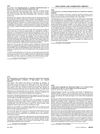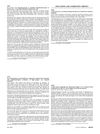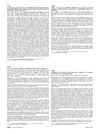 September 2017 in “Springer eBooks”
September 2017 in “Springer eBooks” Low-level laser therapy seems to promote hair growth but requires more research to confirm its effectiveness.
September 2017 in “PubMed” Monilethrix is a rare genetic hair disorder with no cure, but low-dose oral minoxidil may help.
 August 2017 in “International Journal of Research in Dermatology”
August 2017 in “International Journal of Research in Dermatology” Lichen planus is not linked to metabolic syndrome, but it is associated with higher rates of high blood pressure, high triglycerides, and low HDL cholesterol.
April 2017 in “The FASEB journal” Low selenium levels worsen health but increase lifespan in mice.
 January 2017 in “Journal of clinical & experimental dermatology research”
January 2017 in “Journal of clinical & experimental dermatology research” Low ferritin levels might be linked to telogen effluvium, but vitamin D levels are not.
 January 2017 in “Clinical approaches and procedures in cosmetic dermatology”
January 2017 in “Clinical approaches and procedures in cosmetic dermatology” Low-Level Laser Therapy might be a good alternative for hair loss when other treatments fail, but its effectiveness varies and more research is needed.
 January 2017 in “Turkiye Klinikleri Journal of Dermatology”
January 2017 in “Turkiye Klinikleri Journal of Dermatology” Low vitamin D levels, not ferritin levels, were found in patients with hair loss condition telogen effluvium.
 January 2017 in “Journal of Investigative Dermatology Symposium Proceedings”
January 2017 in “Journal of Investigative Dermatology Symposium Proceedings” The 2015 Hair Research Congress concluded that stem cells, maraviroc, and simvastatin could potentially treat Alopecia Areata, topical minoxidil, finasteride, and steroids could treat Frontal Fibrosing Alopecia, and PTGDR2 antagonists could also treat alopecia. They also found that low-level light therapy could help with hair loss, a robotic device could assist in hair extraction, and nutrition could aid hair growth. They suggested that Alopecia Areata is an inflammatory disorder, not a single disease, indicating a need for personalized treatments.
 April 2016 in “Journal of The American Academy of Dermatology”
April 2016 in “Journal of The American Academy of Dermatology” Low-cost videomicroscopes might not be reliable for examining scalp disorders compared to standard methods.
 April 2016 in “Journal of The American Academy of Dermatology”
April 2016 in “Journal of The American Academy of Dermatology” Low-cost videomicroscopes may not be reliable for diagnosing scalp disorders, smartphones could be reasonable for teledermatology, and U.S. residency programs need more teledermatology training.
 January 2016 in “International Journal of Research in Medical Sciences”
January 2016 in “International Journal of Research in Medical Sciences” Low iron, low thyroid function, and stress are linked to excessive hair shedding in women.
Low Vitamin D3 levels are linked to hair loss in female students in South India.
May 2014 in “Hanbang an'i'bi'in'hu pibu'gwa haghoeji” Low-level laser therapy is effective and safe for treating hair loss.
 January 2013 in “kerbala journal of pharmaceutical sciences”
January 2013 in “kerbala journal of pharmaceutical sciences” Low zinc levels are strongly linked to hair loss in adult premenopausal women.
 February 2010 in “Journal of The American Academy of Dermatology”
February 2010 in “Journal of The American Academy of Dermatology” Low-level laser therapy increased hair growth compared to no treatment.
 July 2009 in “Medical & surgical dermatology”
July 2009 in “Medical & surgical dermatology” Low-dose acitretin helps nail psoriasis, stem cells may treat scarring alopecia, Chinese men have lower baldness rates, lateral foldplasty is good for ingrown toenails, hair diameter helps diagnose female baldness, childhood trauma linked to alopecia areata, certain hair-weaving leads to scalp conditions in African American women, and new methods for hair research and understanding hair and sweat gland development were introduced.
 March 2009 in “The Journal of Urology”
March 2009 in “The Journal of Urology” Low dose finasteride causes only small changes in PSA levels in older men with BPH.
Low doses of certain Chinese herbs can promote hair growth, while high doses may inhibit it.
 November 2003 in “Aap Grand Rounds”
November 2003 in “Aap Grand Rounds” Low-dose flutamide-metformin therapy effectively improved PCOS symptoms in adolescent girls.
 June 2001 in “Proceedings of SPIE”
June 2001 in “Proceedings of SPIE” Low energy laser therapy effectively treats certain skin conditions and improves recovery time without side effects.
 December 1997 in “Proceedings of SPIE, the International Society for Optical Engineering/Proceedings of SPIE”
December 1997 in “Proceedings of SPIE, the International Society for Optical Engineering/Proceedings of SPIE” Low-energy laser therapy can improve scalp alopecia treatment when combined with classical methods.
 April 2023 in “Actas Dermo-Sifiliográficas”
April 2023 in “Actas Dermo-Sifiliográficas” Low doses of oral minoxidil, a hair loss treatment, can cause temporary morning swelling around the eyes, but it's not serious and can disappear with continued use or dose adjustment.
March 2023 in “Pakistan Journal of Medical and Health Sciences” Low vitamin D levels are linked to higher rates of hair loss in women.
January 2023 in “International journal of dermatology, venereology and leprosy sciences” Low levels of vitamin D and ferritin may increase the risk of female pattern hair loss.
August 2022 in “International Journal of Dermatology” Low-dose oral and sublingual minoxidil seem safe for children with hair disorders.
August 2022 in “Facial Plastic Surgery Clinics of North America” Noninvasive treatments like minoxidil, finasteride, and low-light laser therapy can help with hair loss.
July 2022 in “Journal of Investigative Dermatology” Combining Low Level Light Therapy and minoxidil may help with hair growth, but more research is needed.
 February 2022 in “Faculty Opinions – Post-Publication Peer Review of the Biomedical Literature”
February 2022 in “Faculty Opinions – Post-Publication Peer Review of the Biomedical Literature” Low-dose oral minoxidil is a promising, safe treatment for various hair diseases, improving hair thickness and density, but more research is needed on long-term side effects and treatment duration.
 January 2022 in “DOAJ (DOAJ: Directory of Open Access Journals)”
January 2022 in “DOAJ (DOAJ: Directory of Open Access Journals)” The document talks about effective treatments for hair loss, including minoxidil, 5 alfa-reductase inhibitors, low light laser therapy, and platelet-rich plasma.
 January 2022 in “Clinical Cases in Dermatology”
January 2022 in “Clinical Cases in Dermatology” Androgenetic alopecia, a common hair loss condition, can be treated with topical minoxidil, oral finasteride, or oral spironolactone, and new treatments like platelet-rich plasma, low-level laser therapy, and janus-kinase inhibitors are being explored.




















